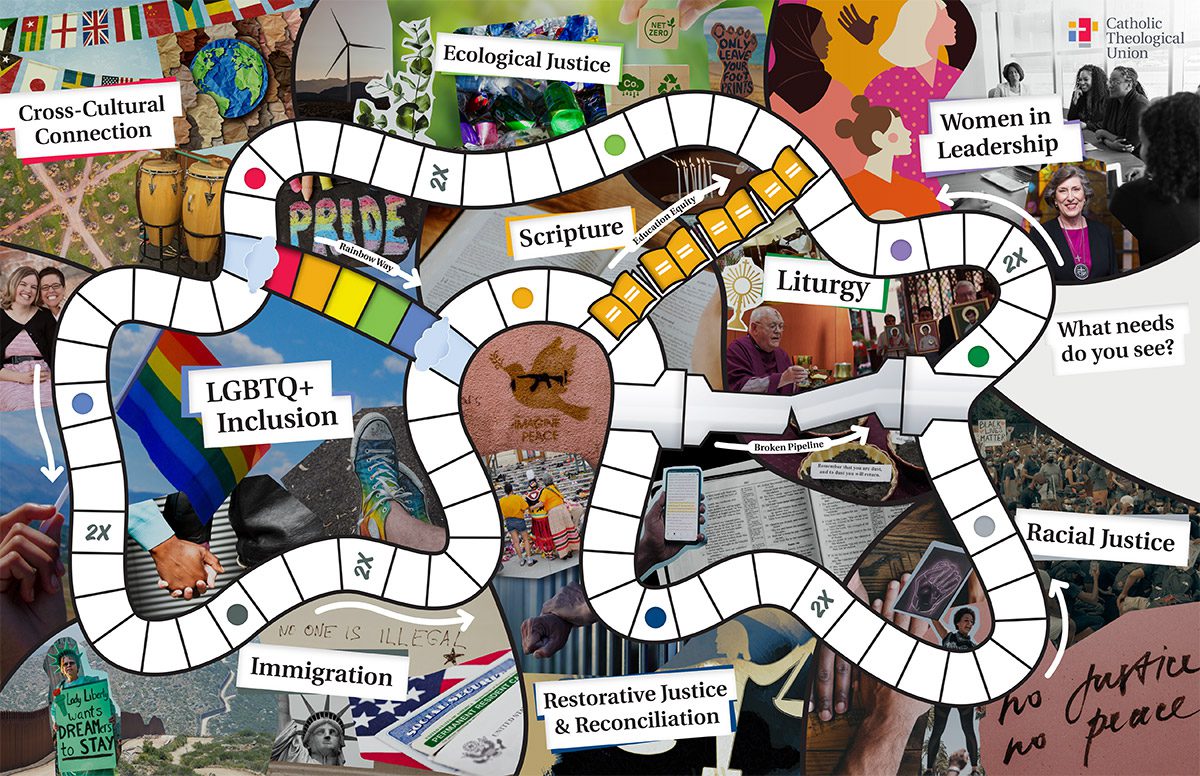Possible Preaching Themes
Possible Scientific Resources
- The dynamics of an honor/shame culture (1st reading and Gospel)
- The challenge and gift of humility (1st reading and Gospel)
- The power of meals (Gospel)
- Honor/shame cultures
- “Approaching Honor and Shame with Humility,” missiological perspectives https://papers.ssrn.com/sol3/papers.cfm?abstract_id=3935102
- “Honor as Cultural Mindset,” original research https://www.frontiersin.org/articles/10.3389/fpsyg.2016.01921/full
- “Culture of Honor,” introduction from cultural psychology http://psychology.iresearchnet.com/social-psychology/cultural-psychology/culture-of-honor/
- “Cultural Models of Shame and Guilt,” rich overview http://www.gruberpeplab.com/teaching/psych3131_summer2015/documents/3.2_WongTsai_2007_CultureShameGuilt.pdf
- Humility
- “Measuring Humility and its Positive Effects,” accessible social psychology, https://www.psychologicalscience.org/observer/measuring-humility-and-its-positive-effects
- “The Psychology of Intellectual Humility,” non-technical overview https://www.templeton.org/wp-content/uploads/2018/11/Intellectual-Humility-Leary-FullLength-Final.pdf
- “New psychology study identifies ‘hypo-egoic nonentitlement’ as a central feature of humility,” key is non-entitlement, https://www.psypost.org/2019/10/new-psychology-study-identifies-hypo-egoic-nonentitlement-as-a-central-feature-of-humility-54657
- “Be Humble, and Proudly, Psychologist say,” popular report https://www.todayonline.com/world/be-humble-and-proudly-psychologists-say
- Meals and dining
- “Do Family Meals Really make a Difference?” nuanced summary https://www.livehealthyiowakids.org/wp-content/uploads/2017/03/Family-Mealtimes-2.pdf
- “The Family Dinner Project,” homepage of Harvard project http://www.pz.harvard.edu/projects/the-family-dinner-project
- “Breaking Bread: The Function of Social Eating,” rich summary https://link.springer.com/article/10.1007/s40750-017-0061-4
- “How food – yes, food – can be a tool for social change,” overview article and TED talk https://ideas.ted.com/how-food-yes-food-can-be-a-tool-for-social-change/
Homily Outline Combining Resources
- Humble and American?
- Difficult to characterize the almost 335 million U.S. citizens
- a country with one of the most complex cultural identifies in the world
- Recent survey indicate that we view ourselves as
- Friendly
- Thoughtful
- Careful
- When it comes to shared core values almost 80% of us confirm the importance of
- Equality
- Liberty
- Progress
- No survey indicates that a dominant national characteristic is “humility”
- We think we are the richest country in the world, but ranked 13
- Or have best health care services in the world, ranked 18th
- We did not win the medal count at the 2022 Beijing Olympics [came in 5th after Canada]
- Unfortunately, we do have the highest per capita prison population in the world
- Difficult to characterize the almost 335 million U.S. citizens
- Humility is not about humiliation
- Though the words come from same Latin root meaning “lowly” (humilis), they are not the same
- Humiliation involves being exposed about a private matter leading to derision and/or distress
- Recall Olympic athletes reporting being robbed at gun point in Rio during the 2016 summer Olympics
- Eventually media flooded with the true story: they engaged in indecent and vandalizing behavior
- In the aftermath, the most famous of these characters lost major endorsements valued between 5 to 10 million dollars in future income
- No well-balanced person wants to be humiliated
- Humility is different
- “Humility is not thinking less of yourself, but thinking of yourself less”
- Researchers find humility has two main characteristics
- Intrapersonally it involves an accurate view of the self
- Interpersonally it involves a stance that is “other” rather than “self” focused
- Humility is good for us and good for business
- While not a national instinct, a humble stance has much to recommend it
- The main benefit concerns social bonds
- A humble stance appears to strengthen social bonds
- Especially in relationships that may experience conflict
- Or where difference threatens the security of a relationship
- Family relationships play this out on a daily basis
- Always “being right” is seldom an effective strategy for keeping our families well
- Given the political polarization in our society
- Intellectual humility is especially important
- This is an awareness of how incomplete and fallible our views on political and social issues are
- Business research has borne out the economic value of humility
- Humility is important for becoming an effective leader
- It also improves an organization’s evolution and bottom line
- Jesus, humiliation, and humility
- Jesus clearly had the gift of humility
- He was certainly more “other” than “self-focused”
- That humility led to humiliation in his public execution as an enemy of the state and the Temple
- It was not a humiliation he sought – he was not a self-hater
- But a humiliation he was willing to endure for the sake of others
- A sacrifice that sprang from his divinely graced humility
- As a gifted leader he was interested in cultivating “organizational humility” among his followers
- Multiple times in the gospels he invites his disciples to model his own servanthood (e.g., Mark 9:35, Matt 5:3, Matt 11:29, Matt 18:1 & 4, Luke 9:48, John 13:12-16)
- Such humility at the center of the Godhead reveals a shocking and liberating vision of the divine reign that Jesus inaugurated
- That does not demean or humiliate the other in order to promote self-worth
- But raises up others so that the liberation of God may be full realized
- And all may rise together as honored children of God
- An illustration
- Booker T. Washington was among the most respected African American leaders of his era
- An adviser to two American Presidents
- The Founder of the renowned Tuskegee Institute in Alabama
- A wealthy white woman wanted someone to chop wood for her
- She approached a Black man strolling by and asked if he would like to early some money
- He smiled, rolled up his sleeves and did the work
- Later a servant informed the matriarch of his identity
- When she came to his office at the Tuskegee Institute to apologize, he respond, “it’s perfectly all right, madam.” “Occasionally I enjoy a little manual labor. Besides, it is always a delight to do something for a friend.”
- Jesus refused to call us servants, but instead “friends” (John 15:15)
- Humility is a graced venue for expanding that circle of friends.
- Booker T. Washington was among the most respected African American leaders of his era
Related Homily Outlines
Couldn’t find what you’re looking for?
Try searching with another filter

Preaching with Sciences

Edward Foley, Capuchin
Duns Scotus Professor Emeritus of Spirituality
Professor of Liturgy and Music (retired)
Catholic Theological Union
Vice-Postulator, Cause of Blessed Solanus

















